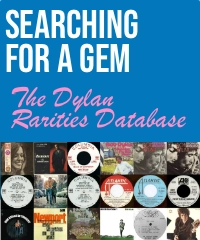<< Back to Blog
Dylan Revisited: Bootleg Vol. 6 – Philharmonic Hall (1964)
Whenever I watch Bob Dylan documentaries like Don’t Look Back, Rolling Thunder Revue and No Direction Home, Joan Baez is always one of my favorite characters. The same happens when I listen to The Bootleg Series Vol. 6: Live 1964 – Concert at Philharmonic Hall.
Joan Baez only features on four of the 19 songs Bob Dylan performed at New York’s Philharmonic Hall on Halloween 1964. But – like any time I see her talk about Dylan or perform with him – her energy, humor and good nature shine through during this brief appearance.
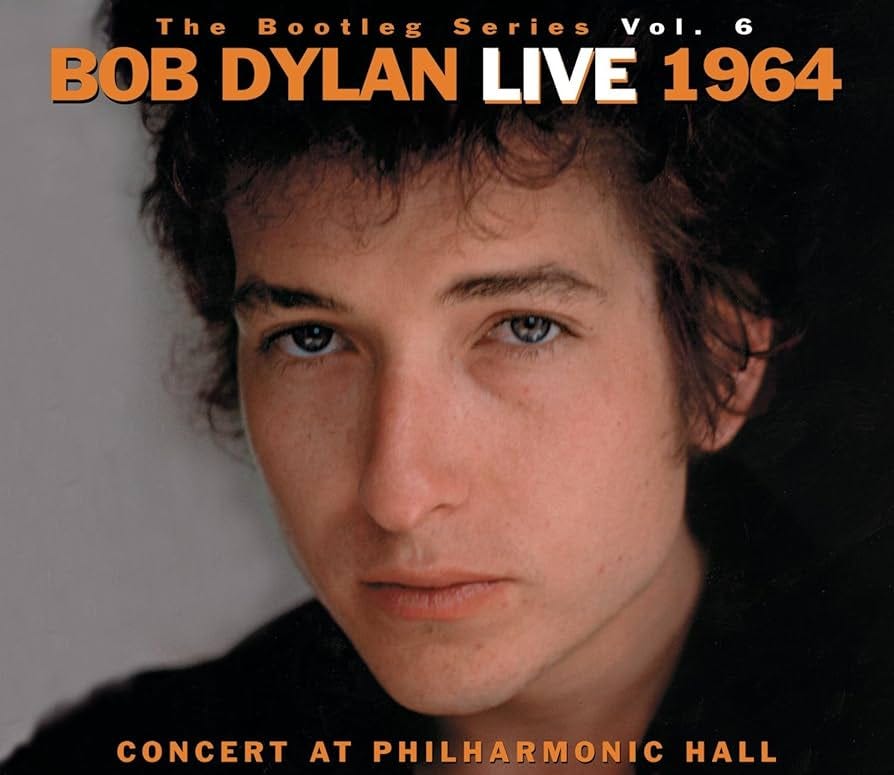
From the moment she takes the stage, Baez is jocular and playful. Duetting with Dylan on Mama You Been On My Mind, she breathily sings “chooga chooga chooga” behind his train-like guitar.
Yet she’s also being played with. Dylan stretches his intros to each verse on Mama and she struggles to follow him. At first, making their duets difficult seems like Dylan having fun, but it may also be tinged with a streak of malice.
Dylan had been growing tired of sharing his spotlight with Baez. A spotlight that was once hers. One of the biggest breaks of Dylan’s career came when Baez invited him on stage with her at Newport Festival in 1963.
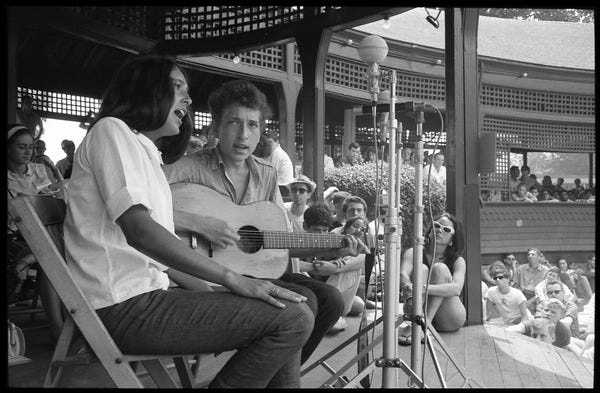
Back in 1959, Baez had made her own name in folk circles with a Newport appearance. Four years later, she was singing With God On Our Side and introducing her adoring crowd to the song’s fresh-faced, up-and-coming writer.
But just 12 months on, the tables had turned. Dylan was not just a star of the folk scene, he had become an icon. Now when they sing With God on our Side at the Philharmonic Hall, he’s the headliner, changing lyrics so she can’t sing along.
Like the Philharmonic Hall audience, Joan Baez laughs off Dylan’s performative jabs. She seems generous, open-hearted and very much in love in ways that Dylan decidedly wasn’t.
Baez was also still extremely committed to the protest scene. She almost had to drag a very uncomfortable Bob Dylan onstage to perform at the March on Washington in August 1963.
A year later at The Philharmonic Hall, he’s increasingly indifferent to the protest persona that his appearance alongside Dr. King helped cultivate.
Dylan’s reluctance is expressed in the way he rushes into the set’s opening song, The Times They Are a-Changin’. The anthem that used to kickstart his live show now sounds like a chore to get out of the way.
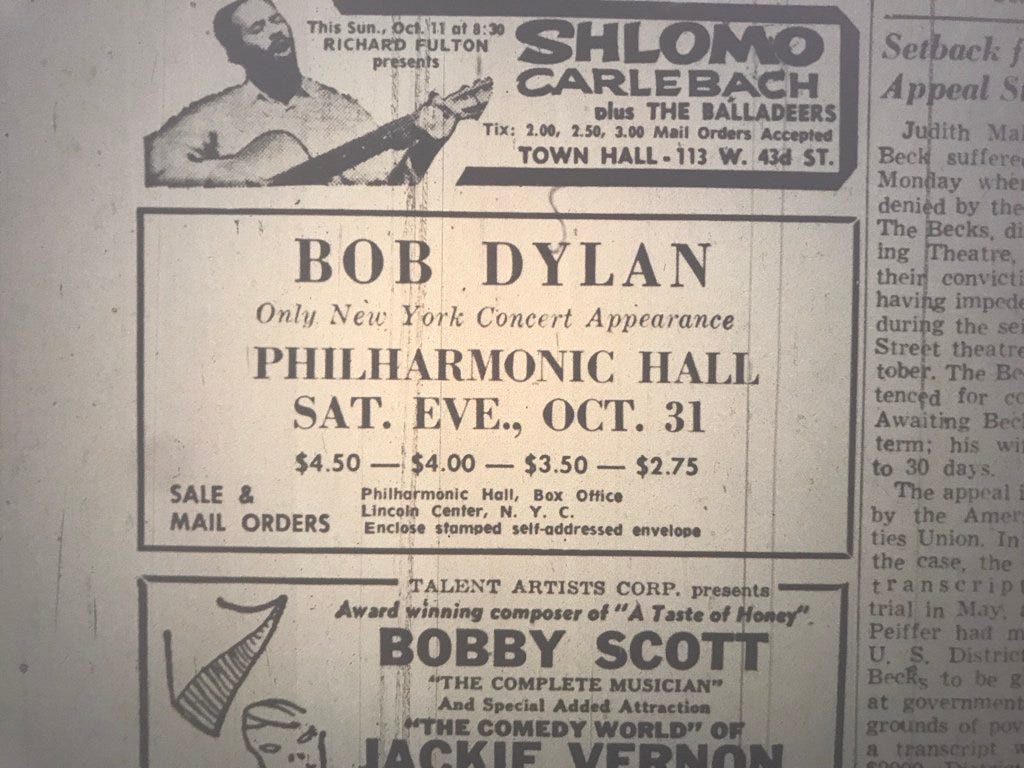
He follows up Times with a great performance of Spanish Harlem Incident, a song whose symbolist sway is emblematic of Bob Dylan’s Another Side.
Dylan returns to topical themes with John Birch, whose introduction the audience applauds. The set continues this one-for-them, one-for-me approach with a harmonica-heavy To Ramona followed by Who Killed Davy Moore?
The audience may have thought Dylan was sticking with topical themes when they heard the next song’s opening, “Of war and peace…” But it’s a bait’n’switch. This is the first time most will have experienced the intense surrealism of Gates of Eden.
The Philharmonic crowd’s respectful, but likely baffled, applause at the conclusion of Gates of Eden contrasts with the bawdy laughter and roars of approval that greet another new song, If You Gotta Go, Go Now (Or Else You Got To Stay All Night).
If You Gotta Go is a fun song packed with witty one-liners and the audience laps up Dylan’s upbeat performance. While his studio version of the song was only released as an outtake on Bootleg vol. 2, Manfred Mann had a UK hit with it in 1965.
Dylan offers his audience some more topical crowd pleasers, ending the show’s first half with the rapturously received A Hard Rain’s a-Gonna Fall. He opens the second half with Talkin’ World War III Blues then plays a fine version of Hattie Carroll, just before Joan Baez joins him onstage.

As she waited in the wings, Dylan’s protest partner may have grown frustrated as he unleashed more new songs that strayed from the topical template. Though I Don’t Believe You’s ignored ex-lover would prove all too relevant to Baez the following year when she accompanied an increasingly distant Dylan on his UK tour.
How the times had changed. As the relatively unknown Bob Dylan was cutting his debut record in Nov 1961, Joan Baez was selling out New York’s Town Hall. She had also just released her second album, Joan Baez, Vol. 2, which went gold.
At the Philharmonic Hall in 1964, Baez went back to her debut record, called – you guessed it – Joan Baez. Her solo vocal performance of that album’s opener Silver Dagger, with Bob Dylan accompanying on guitar, is wonderful.
Baez followed up her hit sophomore record with a pair of concert albums (you can guess the titles), both of which sold well. The second live set contained her first Dylan covers, With God On Our Side and Don’t Think Twice It’s Alright.
Dylan performs Don’t Think Twice alone at the Philharmonic and gives us a preview of how he’ll adapt his vocals when he needs to be heard over a loud electric backing band. Come on down, shouty Bob.
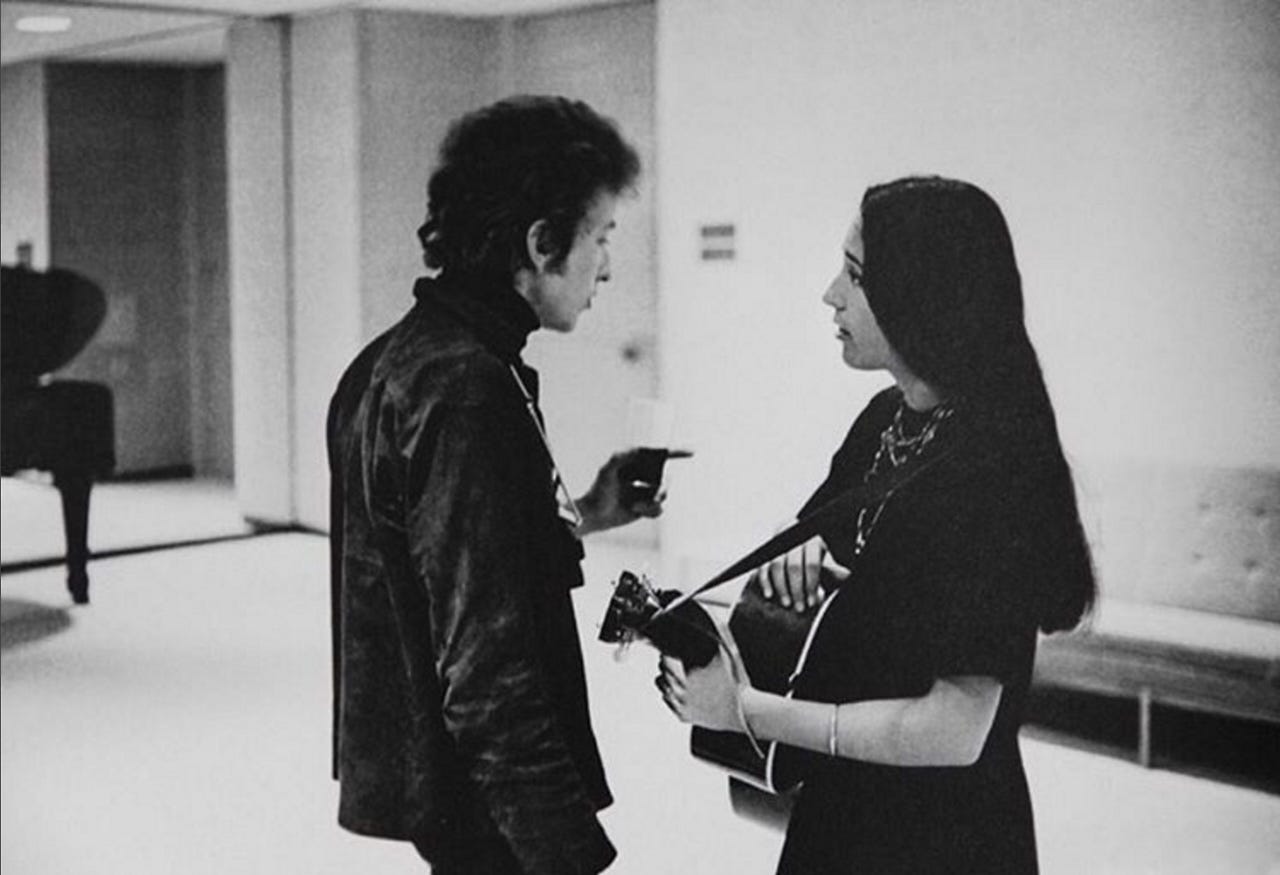
As Baez and Dylan’s personal and professional relationship developed, her songs became more contemporary. She had largely been an interpreter of traditional folk songs. Now her topical choices were aligning with her interest in wider social issues.
But as we know, Dylan was leaving that scene behind, while also using more drugs, which Baez despised. While Dylan always insists that Mr Tambourine Man isn’t a drug song, its woozy insularity clashed with Baez’s growing outward reach.
Of course, Bob Dylan was not really done with protest music, he was simply reinventing it. He first played It’s Alright, Ma (I’m Only Bleeding) on Sep 1st, 1964 at Philadelphia’s Town Hall.
Two months later he’s enthralling New York’s Philharmonic audience with a thrilling performance (mistakes and all) of this extraordinary nine-minute epic.
I imagine Joan Baez would have appreciated It’s Alright Ma’s scything social critique even as she urged Dylan to refocus on more specific causes and concerns. But as they end their duet section with It Ain’t Me Babe, it feels like he’s making a point.
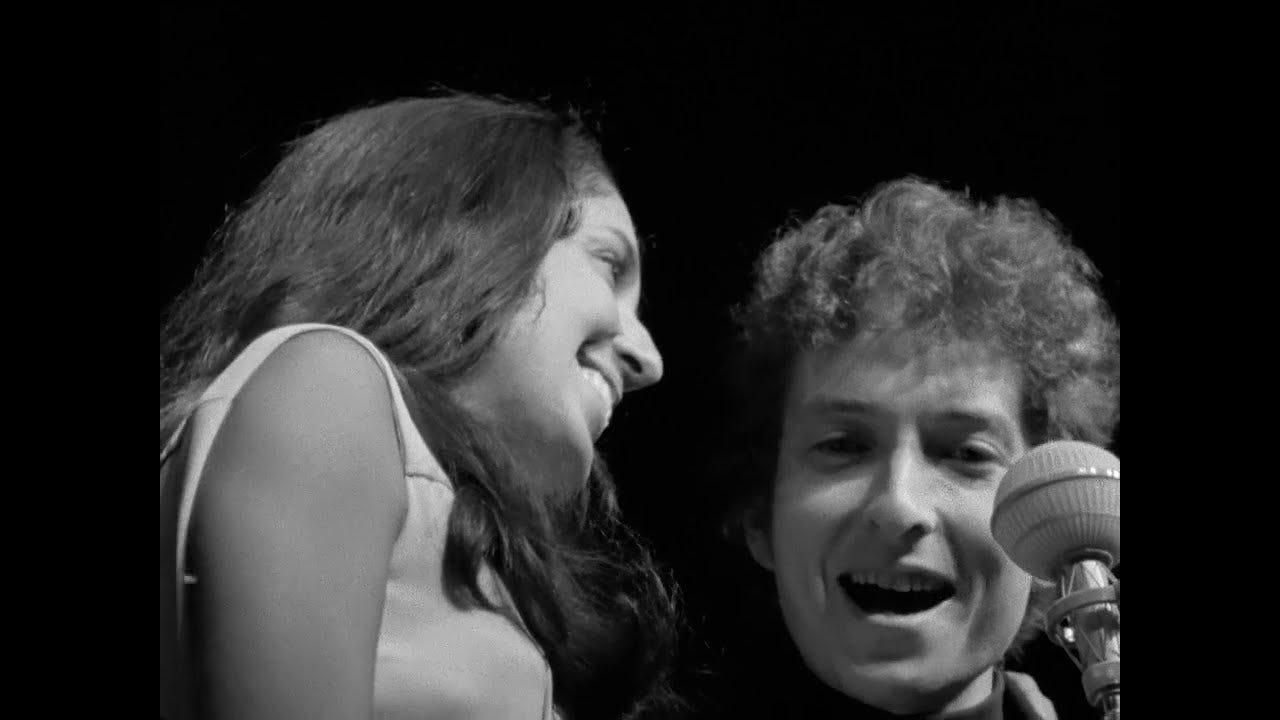
Just as the song’s position as Another Side’s closer seemed designed as a farewell to the folk scene, so here Dylan is letting Baez know that he’s not the one for her and her causes. And after she leaves the stage, he’s got one more message for her.
Though All I Really Wanna Do was a hit for Cher, this slight song is still an understated way to conclude such a memorable show. Unless “be friends with you” is aimed more at his stage-side lover than the audience in front of him.
I revisited Bob Dylan’s 1964 Philharmonic concert through the lens of Joan Baez in order to explore their fascinating relationship. Overall, Bootleg Vol. 6 is a wonderful document of a superb live set that is essential listening for Dylan fans.
What did you think of The Bootleg Series Vol. 6: Live 1964? Did I spend too much time on Queen Joan? Which great Dylan performances did I neglect?
The FM Podcast Network Shows
- Dylan.FM
- The Dylantantes
- Infinity Goes Up On Trial
- Watching The Covers Flow
- Pod Dylan
- The Bob Dylan Primer


